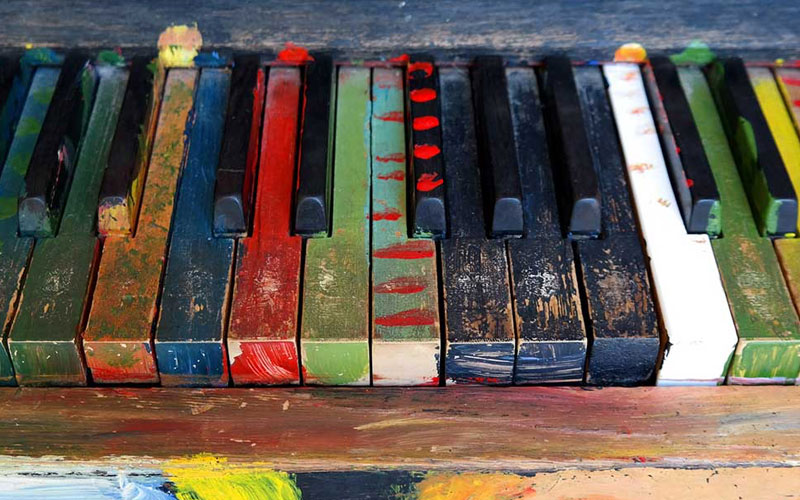
About Talent
I would like to express that I am fed up with this unending notion of people who are so “talented” in knowing what talent is (pun intended). Who wouldn’t be fed up? Talent here, talent there, talent everywhere. For some, even a brick wall is extremely talented, since it knows how to stop a car.
“Oh, my Auntie is playing the trumpet, she is so amazing!” Or,”My mother in law is performing the banjo tonight with the local singers, she is so talented”! No, she is not. She just happens to play the banjo, and you’re not.
But enough of my moaning and twaddle.
What Talent Is
Talent is a glorified way of saying you do something. Basically, when you cannot do something you’re not talented, whereas if you can do it, you are. Simple.
All that about having a gift or flair are completely misguiding and can do more damage than good to the young and eager to learn.
We are All Equal
Every human brain, in my poorest of opinions, is the same; every human being is equally blessed to do amazing things and has the same quality of capacities no matter the place of birth, the race, etc. We all have the capacities to create divine music and perform wonderfully no matter what our financial backgrounds are, our parents’ upbringing or if the stars align properly on the 1st of march.
That being said, we must also appreciate that in this cruel world there are many people plagued with disabilities; however, those people still create wonderful things. They excel in sports, in the arts and sciences. Except, of course, in the unfortunate event when a person has a medical condition, that prevents the brain or the body to function properly. But even then, this unfortunate individual is equally important in shaping the world’s future; is equally talented.
We are All Equally Talented
So, the only thing that can truly separate us from each other is our personal provenance; that is, our life experiences, our unique interests and leisure activities, and other personal paths that by the sheerest of chances we happened to follow.
Let me elaborate with an example: say you were living in the mountainous area of Oymyakon in Siberia, and didn’t have the access to play the piano but nevertheless adored it; still, you wouldn’t have been considered a talented pianist, because simply, you wouldn’t have had the opportunity to have “met” the piano altogether. Whereas, if you, the same person who adored the piano, were growing up in New York city, a more approachable and rounded musical environment, if it happened that you played the piano amazingly, you would have been considered a talented pianist.
Why Talent is Irrelevant
Talent is irrelevant for humans because the absence of it cannot prove that this world can not move forward successfully. One might even argue, that absence of talent can be advantageous to the natural continuation of things in this extremely partially understood world. Can you disprove this? I can’t, but I can’t prove it either.
Earth will still be able to revolve even if you don’t write the next Hamlet. Roses will still be able to bloom in spring, even if you don’t manage to complete your thirty-sixth symphony and instead be left with only thirty-five completed ones. Birds will still be able to exquisitely twit even if you don’t throw eight touchdowns in a single game.
All is needed and all is equally important in the continuation of this perfectly evolved world. Thus, the notion of talent is overrated and perhaps irrelevant.
Talent Depends on Provenance
As we are all equal, I’m afraid once again and hate to burst a couple of bubbles, that talent depends on some of the following factors:
Past experiences: The more relevant experiences you’ve had in your chosen field the more chances to be vainly considered talented. Say that your neighbor liked listening to classical piano and lent you a couple of CDs to taste some classical pieces. This immediately makes you more educated regarding classical music and favors you in comparison to another pianist who didn’t have access to quality classical music, and this already puts on track to be considered “talented”. Doesn’t surprise you that a lot of good musicians’ parents are also musicians? That doesn’t mean of course that your parents have to be musicians for you to succeed in music, but that’s another story.
Liberal access to the subject in question: Simply put, it’s a matter of access to available resources. Again, it’s like the vitamins our doctor prescribes; the more you consume healthy foods the more your chances of leading a healthy life. In our case, as long as you are exposed to a lot of quality music material and being in the company of relevant and knowledgeable people of your subject, you increase your chances of becoming proficient in your chosen field; and being proficient, equals to being considered talented in this world.
Assistance from others: How much others are willing to help you realize your potential/interest. To succeed (and therefore to uselessly manage to be considered talented) you will need support and lots of it.
Say that you want to learn the piano and become a virtuoso pianist. This is your dream and you know that you can do it. Similarly to a previous example, you live on a remote island and the only way to play the piano is for your parents to buy you one from the mainland. Well, if they don’t buy you one, I’m afraid you’re doomed to forever live in the land of “untalented” pianists. And of course, you’ll never know if you were ever going to be considered a “talented” pianist. It sounds unfair, but that’s life.
Do you begin to be getting the gist of this “talent” nonsense? I hope you do because the sooner you realise that talent means absolutely nothing and kindly dismiss the talent proclaimers, the better are your chances to succeed in music; and, why not, become a more level-headed personality- that never hurts.
Talent Requires the Element of Comparison
In order to be considered talented, you need to always be compared to someone or something, well… “less talented”.
So, for example, if you could only play Twinkle Twinkle Little Star with your right hand, but your friend can play a sonatina by Kuhlau hands together, he can arguably be considered more “talented” than you (especially if the person judging is not an expert). But if your friend, who plays the sonatina, is compared with someone who plays Liszt’s b minor sonata in London’s Wigmore Hall, your friend quickly becomes less talented. So unfair, isn’t it?
Talent is Depended on Who is Judging
The more experienced the judge, the strictest they become when judging talent. So, if you’re eager to be considered talented, make sure you are only be judged by gentle judges.
Thus, to the eyes of a friend of mine I could be considered an amazing mind who writes prolific articles, a great piano teacher and pedagogue and a wonderful human being, whereas to the eyes of an internationally acclaimed pianist or critic, I could only be considered a deluded amateur, and a wannabe writer who writes nonsensical and laughable articles with shrill tone. What do you think? ?could I be one?
The Importance of Talent
As much as I cringe at the very idea of “talent” I must concede that, somehow, we need the notion of talent and we need talent itself. We need the talent seekers, we need our groupie aunties, we need friends who think we are the next Hemingway or Christian Blackshaw and we need the word talent to be heard as often as possible.
I would like to conclude this article by expressing that even if talent means absolutely nothing, at least hunting for it can inspire us to reach new heights.




